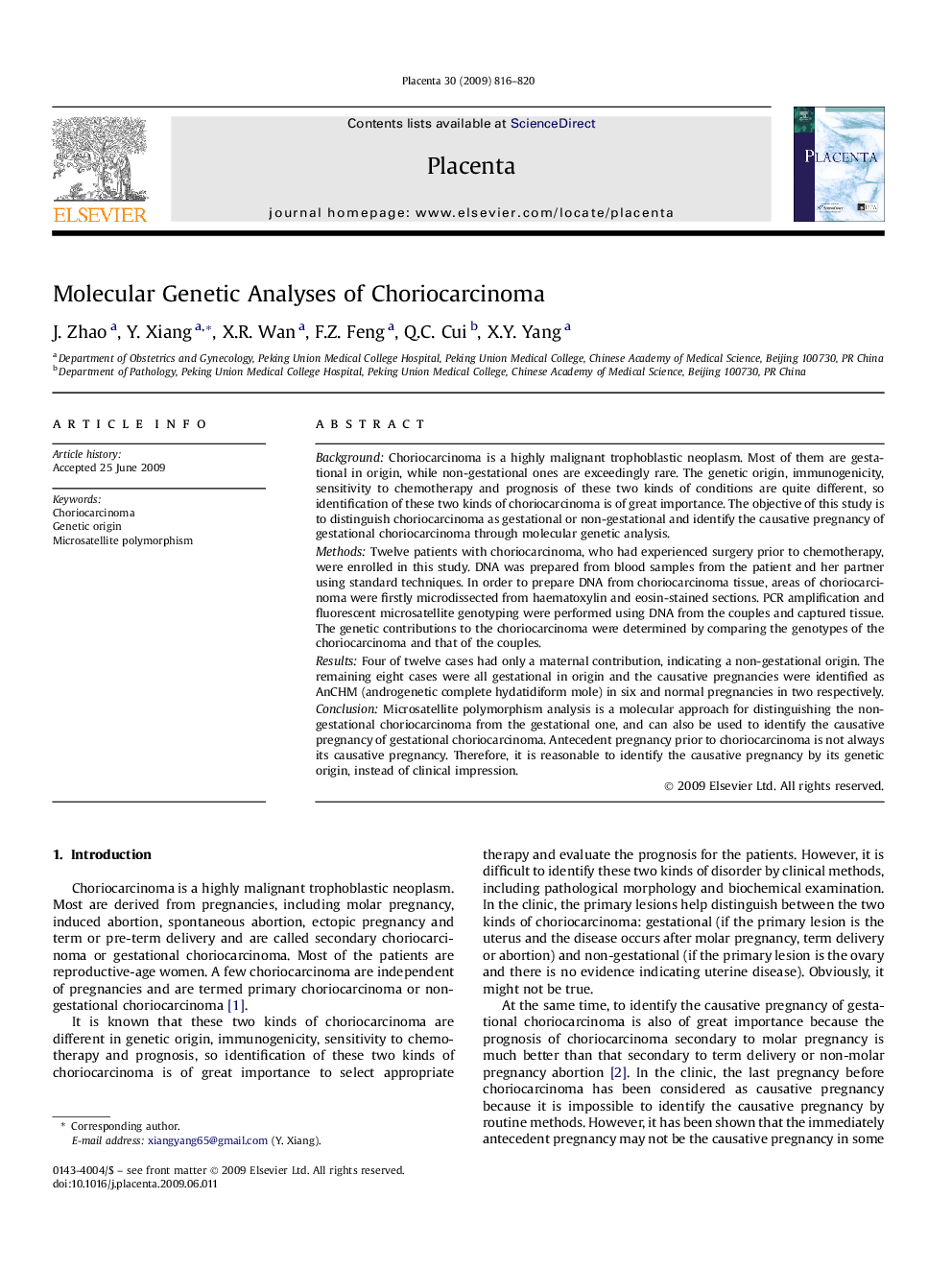| Article ID | Journal | Published Year | Pages | File Type |
|---|---|---|---|---|
| 2789857 | Placenta | 2009 | 5 Pages |
BackgroundChoriocarcinoma is a highly malignant trophoblastic neoplasm. Most of them are gestational in origin, while non-gestational ones are exceedingly rare. The genetic origin, immunogenicity, sensitivity to chemotherapy and prognosis of these two kinds of conditions are quite different, so identification of these two kinds of choriocarcinoma is of great importance. The objective of this study is to distinguish choriocarcinoma as gestational or non-gestational and identify the causative pregnancy of gestational choriocarcinoma through molecular genetic analysis.MethodsTwelve patients with choriocarcinoma, who had experienced surgery prior to chemotherapy, were enrolled in this study. DNA was prepared from blood samples from the patient and her partner using standard techniques. In order to prepare DNA from choriocarcinoma tissue, areas of choriocarcinoma were firstly microdissected from haematoxylin and eosin-stained sections. PCR amplification and fluorescent microsatellite genotyping were performed using DNA from the couples and captured tissue. The genetic contributions to the choriocarcinoma were determined by comparing the genotypes of the choriocarcinoma and that of the couples.ResultsFour of twelve cases had only a maternal contribution, indicating a non-gestational origin. The remaining eight cases were all gestational in origin and the causative pregnancies were identified as AnCHM (androgenetic complete hydatidiform mole) in six and normal pregnancies in two respectively.ConclusionMicrosatellite polymorphism analysis is a molecular approach for distinguishing the non-gestational choriocarcinoma from the gestational one, and can also be used to identify the causative pregnancy of gestational choriocarcinoma. Antecedent pregnancy prior to choriocarcinoma is not always its causative pregnancy. Therefore, it is reasonable to identify the causative pregnancy by its genetic origin, instead of clinical impression.
